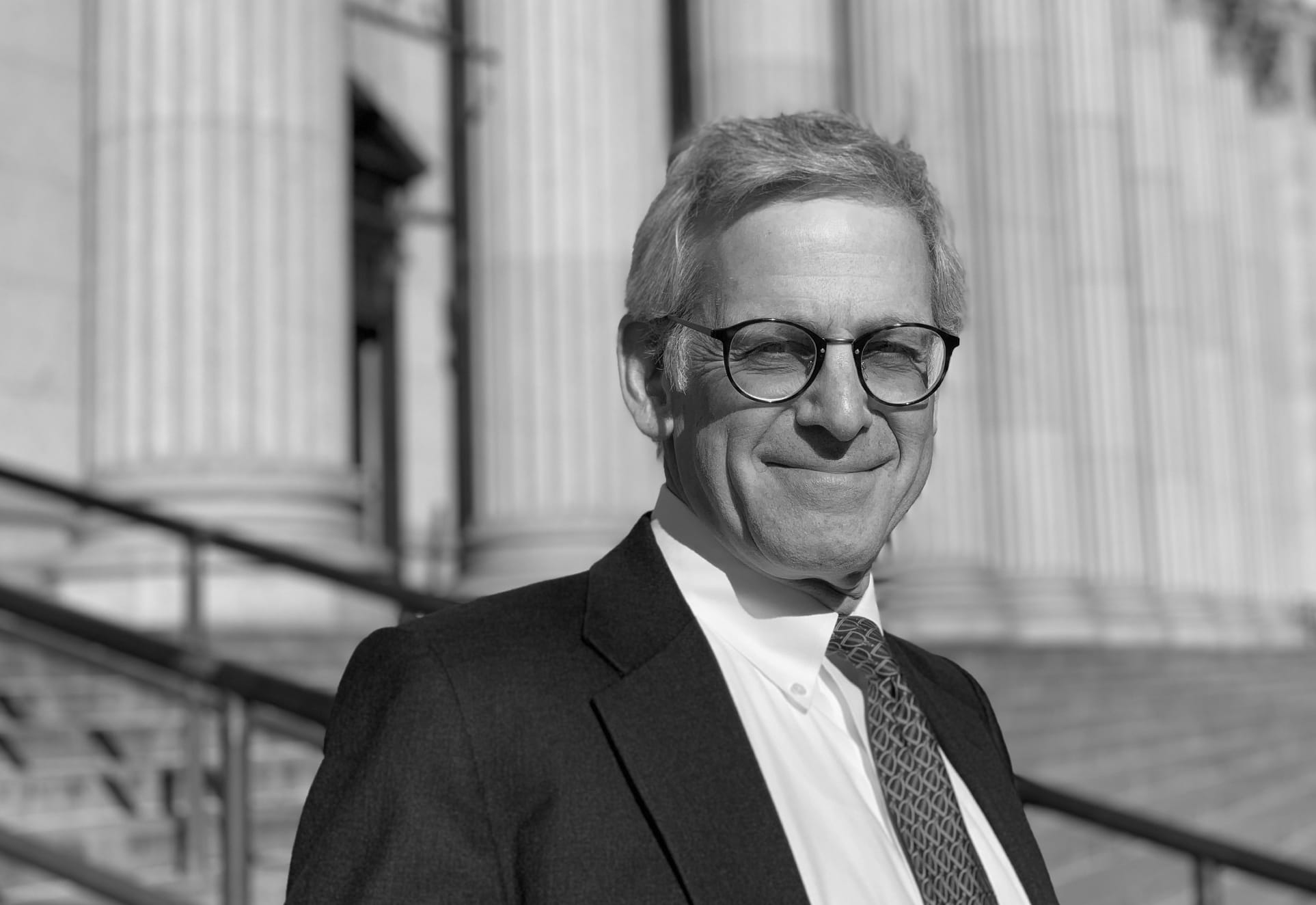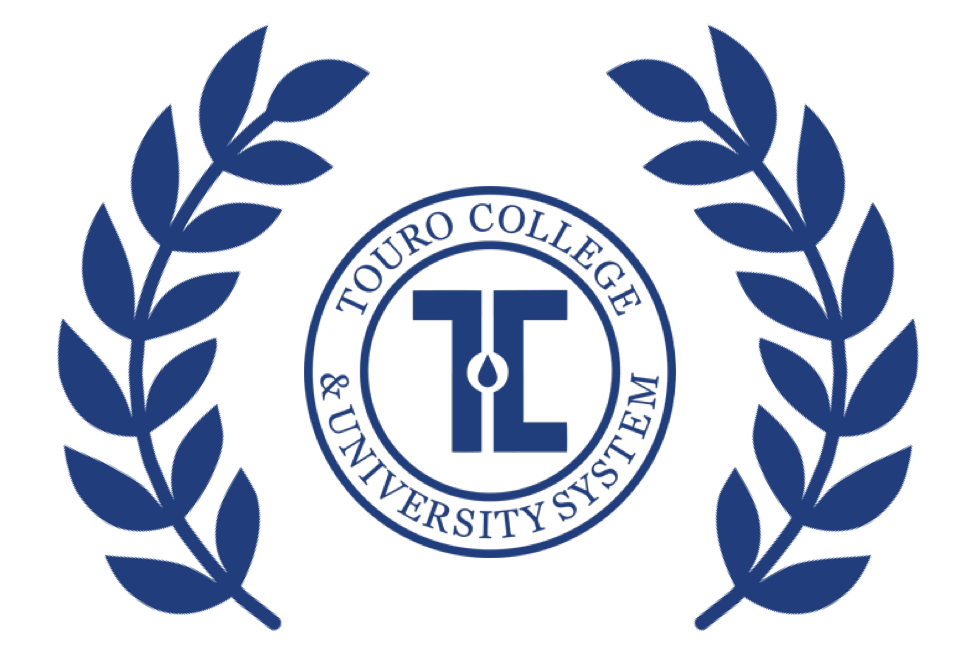Ben Lunzer, MS
Assistant Professor, Information Systems
Graduate School of Technology, Touro College

What His Students Say
It’s the rare professor that can both educate and entertain, but Professor Lunzer’s lectures are fun and informative at the same time. He encourages his students to participate and his classes are the perfect blend of knowledge and humor.
—Reshma Cyclewala
Despite his more than thirty years in a myriad of high tech positions—from building one of the first portable blood analyzers, to developing therapeutic modalities for ultrasound technology, to helping banks develop network capabilities in the early days of the internet—Professor Benjamin Lunzer of Touro’s Graduate School of Technology (GST) wants his students to know that the greatest challenges they will face in the careers ahead of them won’t be the technology itself.
“Technology is easy, people are hard,” laughed Lunzer, a member of Touro’s 2019 Inspiring Faculty. “One of the key things I quickly realized is that I’m not going to teach our students anything new about technology strategy that they don’t know from their own life experience. But the point that I stress repeatedly is that it’s not about the technology, it’s about people. And people behave as they do, irrespective of domain or context.”
Lunzer teaches GST’s Strategic Management of Technology class, a pillar of the technology leadership/project management track in the Master of Science in Information Systems program. Each week under Lunzer’s guidance, students are tasked with delivering a presentation based on a specific case from the Harvard Business School (HBS) Case Studies.
“We analyze business cases to understand how you make decisions,” explained Lunzer. “How do you weigh the options? Nothing is simple, since your company can hang in the balance. Much of the underpinning of the course is HBS Professor Clayton Christensen’s theory of disruptive innovation. While the concept in general is overused, we try to understand it from a theoretical perspective and apply it to cases where it becomes meaningful and it forms direction.”
“What is the nature of disruption? What’s the nature of technology innovation that precludes staying in the forefront? What happened to IBM? Many companies, most companies in fact, cannot sustain cutting-edge innovation. It ends up having a lot to do with people.”
Disruption and innovation have been the hallmarks of Lunzer’s own career and the path that eventually led him to Touro’s technology program. A lifelong New Yorker, Lunzer attended Brooklyn's Polytechnic (which was eventually acquired by New York University’s School of Engineering) and studied biomedical engineering. “It combined both my interests, biology and engineering,” he explained. He joined Sonometrics Systems, a company working in the ultrasound field, right after college.
While using ultrasound as a diagnostic modality was well understood, the possibility of using it therapeutically was still in its infancy. “You were able to take a focused beam to get an image of what’s going on,” said Lunzer. “We wanted to see if we could use the beam in a therapeutic capacity and accurately treat tiny areas without causing damage to surrounding tissue. We were able to do it experimentally and published several papers. Within the last ten years that technique has been further refined and commercialized.”
Some of the experimentation was conducted on the supercomputers at the Cornell Theory Center in Ithaca, one of five supercomputer centers in the country at the time. “We were among the first users of the Center and had the opportunity to present our work to the Center’s director, a Nobel laureate. That was both an honor and a thrill.”
After working in ultrasound, Lunzer moved to Memorial Sloan Kettering where he worked on critical care instrumentation, then to Technicon, in Westchester, where he worked on blood analyzers, and then to U.S. Surgical, in Norwalk, CT, where he helped develop a portable blood analyzer.
A serious dip in the engineering field in the late 1980s led Lunzer and many of his colleagues to the banking industry.
“Virtually everyone I worked with moved to financial services, which was beginning to embrace technology as a core capability,” recalled Lunzer, who spent over 20 years at JPMorgan Chase. “We moved from one highly regulated industry to another. We moved from creating ways to improve the quality of life, to improving the quality of financial markets.”
“It was less personally rewarding,” Lunzer admitted. Though, he added, innovation in all its forms pulled at him. “We were able to push the envelope in a lot of ways. We were introducing network capabilities at a time when it was incredibly new. We facilitated the flow of information across disparate computing platforms in multiple geographies, embracing then new relational database systems and distributed transaction monitors in support of those flows. I’ve been fortunate to have had multiple opportunities to work on greenfield projects doing something that’s not been done before."
In 2009, he began teaching at GST, in addition to a new position managing custom application development for a spinoff from GE, OpenText/GXS.
“Technology is fun in and of itself, but not as rewarding as being able to watch people become motivated around a common cause,” said Lunzer. “The only way you can make new technology work isn’t by focusing on technology, but by focusing on the people, and being sensitive to their different proclivities and ways of working.”
Lunzer said he tries to make his class a model of the global workplace his students will enter, and in which they will hopefully succeed.
“We have an international student body; it’s a microcosm of what they’re going to find in the workplace,” said Lunzer. “Different cultures have differing modes of engagement. What happens in the classroom shows them what is possible when they enter the workplace.”
Lunzer attributes his success with students to his teaching philosophy.
“The overarching message I try to impart is that the real drivers aren’t processes or technologies, but the values and the people who make those values their own.”
Benjamin Lunzer
“Rather than approach the classroom setting as one where the onus is on the students to listen, I believe that the onus is on the teacher to motivate the students to learn.”
Lunzer fills the class with stories from his own lengthy career. One anecdote he likes to impart to his students: During his time at J.P. Morgan, when the company was looking to update to a new technology service, Lunzer presented the CIO with two options.
“I thought it was a simple technology decision,” stated Lunzer. “Instead, the CIO asked me what technology accords better with the values that were important to the company. The overarching message I try to impart is that the real drivers aren’t processes or technologies, but the values and the people who make those values their own.”
Interesting Fact
Lunzer’s high school, Yeshiva University High School, offered a judo class as an elective and Lunzer quickly got hooked. He has a black belt in Judo and is active in the sport.
Medical Family
“Everyone in my house is in medicine,” laughed Lunzer. His wife, Hindi, is a psychiatrist (and a graduate of Touro College). Their oldest daughter is a nurse, their middle daughter is in her third year of medical school, and their youngest daughter is in Touro’s prestigious Lander College Medical Honors Pathways, with plans to attend Touro’s New York Medical College.
A Different Kind of Certification
Lunzer was recently recertified as a General Class Ham Radio operator.
Study Session
Lunzer said that he derives an enormous amount of satisfaction and growth from his daily Daf Yomi chabura, a daily study session. Each day, early in the morning, the group meets to study a double-sided page of the Talmud. “My inspiration at home is from my family, my inspiration in the classroom from my students, and my inspiration as a whole human being is from my chabura and my teacher, Rabbi Sruly Bornstein,” said Lunzer. The sessions begin at six-fifteen every morning and conclude a little more than an hour later; discussions that began in the session continue on WhatsApp during the course of the day. In the years that Lunzer has been part of the group, he said he has grown closer to the other attendees. “We’re very involved with each other’s lives. It is all incredibly rewarding,” said Lunzer.


